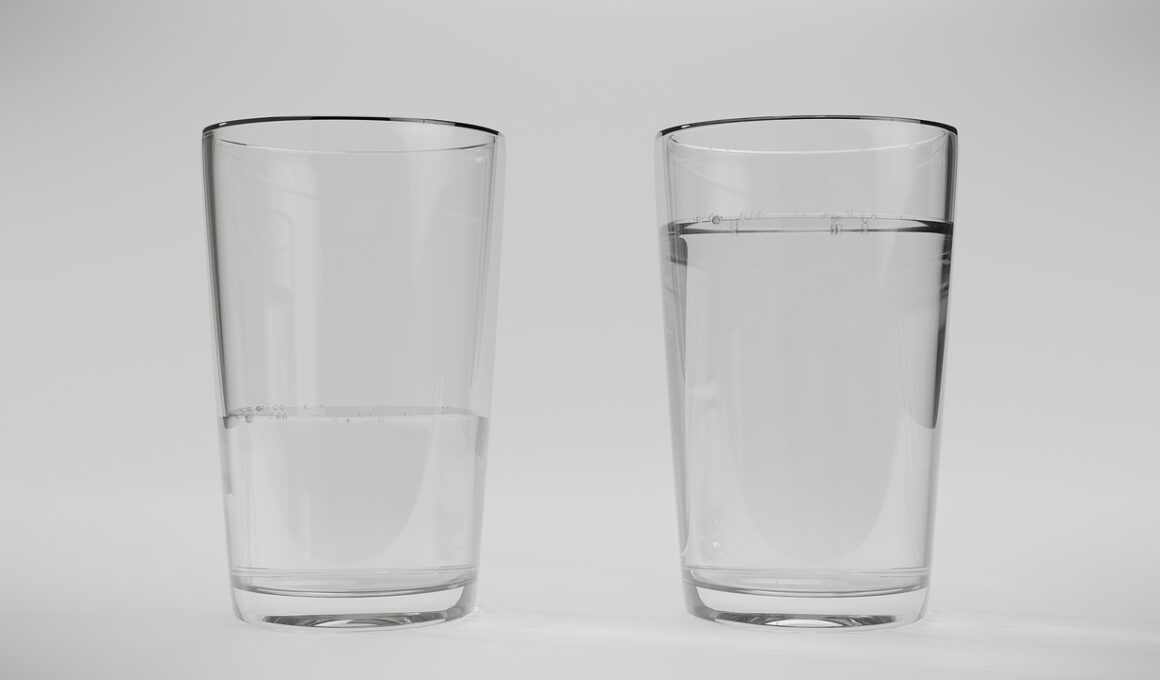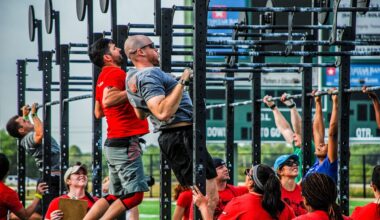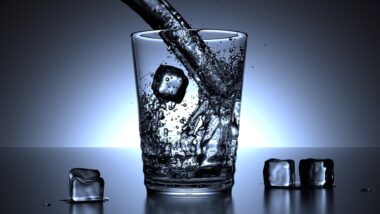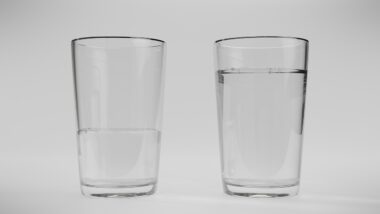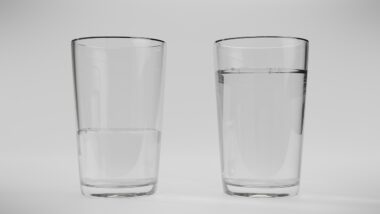Why Drinking Water Alone Isn’t Enough for Proper Hydration
Hydration is essential for our overall health and well-being, but merely drinking water may not suffice. Water plays a significant role in numerous bodily functions, including digestion, temperature regulation, and nutrient transport. However, it’s vital to realize that water alone can’t provide the necessary balance our bodies need to maintain optimal hydration levels. Electrolytes, like sodium, potassium, and chloride, are critical in this process, helping to regulate fluid balance, muscle contractions, and nerve function. When we sweat or engage in intense physical activity, we lose not only water but also these essential electrolytes, making it crucial to replenish both. Without the right balance of water and electrolytes, dehydration can occur, leading to serious health issues. Symptoms may include fatigue, confusion, and muscle cramps. Thus, it is essential to consume fluids that contain electrolytes, particularly in situations involving heavy sweating. Nutrient-rich foods and beverages can provide the body with the necessary electrolytes to complement water intake. Always remember that maintaining hydration is about the quality and quantity of what you consume.
The Importance of Electrolytes
Electrolytes are vital to our health, particularly during hot weather or rigorous physical activity. They help balance the fluids in and out of our cells, regulate nerve signals, and maintain muscle function. Sodium, potassium, calcium, and magnesium are among the most crucial electrolytes. When we consume food or drinks high in these minerals, they help to maintain the necessary concentration of electrolytes in our bodies. Good sources of electrolytes include not only sports drinks but also natural foods like bananas, spinach, and avocados. Proper hydration includes both fluid intake and maintaining adequate electrolyte levels. Inadequate electrolyte intake can lead to symptoms such as headaches, muscle cramps, and fatigue. Therefore, it’s crucial to pay attention to our body’s signals for electrolyte deficiency. Recovery drinks or electrolyte-enhanced waters can offer a convenient option for those engaged in intense workouts. By ensuring we have the right electrolyte balance, we can optimize our hydration strategies and improve our overall performance. Transforming how we think about hydration by incorporating electrolytes can lead to a healthier, more active lifestyle.
The role of hydration goes beyond simply filling up with water. When discussing hydration, we often overlook the importance of timing with respect to when we consume water. For instance, drinking water before, during, and after exercise can significantly impact performance. It’s vital to drink water consistently throughout the day and not just during thirsty moments or intense workouts. Making a habit of sipping water regularly helps maintain optimal hydration levels. Also, certain beverages, like caffeinated drinks, can cause loss of fluids due to their diuretic effects. Consider drinking those in moderation and complementing with electrolyte sources. In certain situations, plain water might dilute the electrolyte concentration, leading to imbalances. Thus, the timing of water intake, the types of beverages consumed, and the balance of electrolytes are all critical when planning a hydration strategy. Those involved in sports or outdoor activities need to be particularly mindful of how these factors affect them. Adopting a thorough understanding of hydration can help maintain peak physical performance.
Hydration and Climate Influence
The environment significantly affects hydration needs. For instance, those living in hotter climates require more fluids compared to individuals in cooler settings. High temperatures increase perspiration, leading to faster depletion of both water and electrolytes. Thus, it is essential to be proactive in replenishing fluids when the weather is hot. To stay properly hydrated, consider drinking more water and consuming foods high in water content, such as fruits and vegetables. Physical activity also has an influence; the more intense the workout, the greater the fluid loss, necessitating even higher electrolyte intake. In hot conditions, symptoms of dehydration can quickly occur, such as dizziness and extreme fatigue, making it essential to listen to your body. Athletes in particular should implement a hydration plan that suits both their activity level and the climate they are in to avoid complications. Understanding the interplay between climate, activity, and hydration can make all the difference in maintaining proper fluid balance and overall health. Implementing strategic habits will help those particularly vulnerable to dehydration.
Hydration Strategies
Implementing effective hydration strategies is key for maintaining optimal health and performance. Start by tracking your water intake with an app or journal to ensure you’re consuming sufficient amounts. Aiming for at least eight 8-ounce glasses of water daily is a practical guideline, but individual needs may vary. Feel free to incorporate beverages like herbal teas or low-sugar sports drinks. Also, carrying a reusable water bottle can serve as a daily reminder to stay hydrated. Pay attention to the foods you eat; consuming fruits, vegetables, and soups can contribute significantly to hydration levels. Additionally, implementing reminders to drink water throughout the day can also reinforce the habit. Listening to your body’s thirst signals is another important strategy, as our bodies are equipped with natural cues for hydration. In cases of intense exertion, be sure to incorporate electrolyte-rich foods and drinks into your regimen. Staying hydrated is more than just drinking water; it’s about embracing a holistic approach encompassing daily intake and food selection.
Failure to recognize the importance of hydration can have serious effects, impacting both physical performance and overall wellness. Individuals who neglect to hydrate properly may experience reduced stamina, fatigue, and impaired cognitive function. When hydration levels drop, concentration can wane, making it more challenging to perform daily tasks effectively. Long-term insufficient hydration can also lead to chronic issues, such as kidney stones or urinary tract infections. Athletes, in particular, who compete without adequate hydration risk both their performance levels and increased recovery times. As hydration impacts physical and mental capabilities, it is crucial to treat it as a priority, not an afterthought. For those engaging in high-energy activities or working long hours in heated environments, a consistent hydration plan is essential. Adopting a proactive attitude towards hydration can mean the difference between thriving and merely surviving throughout the day. By focusing on both water and electrolyte intake, one can maintain a healthy balance and improve wellness comprehensively. Taking these factors seriously ensures you walk away from your routine energized and ready to face challenges head-on.
Conclusion on Proper Hydration
Understanding the multifaceted nature of hydration is paramount. It isn’t solely about water intake; one must also consider electrolytes and overall balance. Throughout the article, we’ve highlighted the significance of electrolytes, hydration timing, environmental influences, practical strategies, and potential consequences of neglecting hydration. A balanced approach is essential for optimal health and performance, whether for athletes or individuals simply seeking to feel their best. By recognizing that both water and electrolytes play vital roles, you can develop a personalized hydration plan suited to your daily needs and lifestyle. Ensuring adequate hydration contributes to mental clarity, enhanced physical performance, and overall well-being. Monitoring water intake and making mindful food choices that incorporate electrolytes will support these efforts. Embrace these strategies, adjust according to your personal needs, and remain vigilant about your hydration levels. Incorporating these lessons can promote a healthier lifestyle. Always remember that your body requires both water and the essential electrolytes needed to thrive, resulting in better energy levels and improved health outcomes.
As we strive for improved hydration, let’s commit to making informed choices when it comes to fluid and electrolyte intake for optimal health. Remember that hydration is not just about water but ensuring that you combine it strategically with electrolytes to maintain balance.
